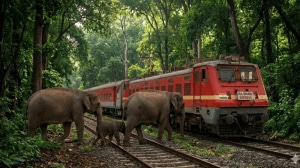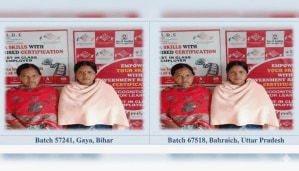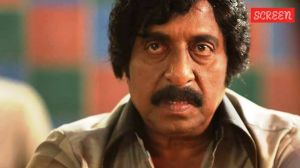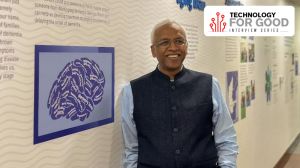The judge and the jungle
Pramod Kumar Jena goes up the steep Niyamgiri for a hearing at Kunakadu and returns much wiser about the tribals,their opposition to mining,and the arduousness of hill climbing
It is a climb that Pramod Kumar Jena is not likely to forget in a hurry. On July 24,as the Niyamgiri hill range was enveloped in a thin film of rain,the Kalahandi Additional District Judge-cum-Special Judge Vigilance set off on perhaps the most difficult trek of his 55-year-old life as he prepared to walk up to Kunakadu village.
Kunakadu was the venue of the fourth pallisabha village meeting called by the Orissa government following the Supreme Courts April 2013 order to consider the religious rights of the 8,000-odd Dongaria Kondh tribals over the Niyamgiri hills,in connection with a Vedanta mining project. Jena is one of the two independent observers appointed by the court to keep a watch on these hearings,which will number 12 in all.
On July 24,Jena sets off early,around 6 am,from his official residence at Bhawanipatna,the district headquarters of Kalahandi. Though the pallisabha is to start at 11 am and Kunakadu is just 75 km away,its a tough and treacherous trek to the upper slopes of the steep Niyamgiri. He travels in a Bolero to Phuldumer village,reaching at 10 am. Kunakadu is a 5-km walk uphill.
The bespectacled Jena,dressed in sensible sneakers and rainwear,is accompanied by a court orderly,a doctor from a nearby primary health centre,a couple of government officials and more than half a dozen armed policemen from Orissaa anti-Maoist force Special Operations Group.
A few steps up and Jena admits that negotiating slippery hilly roads was far tougher than handling argumentative lawyers in courtrooms. In my 28 years of legal career,this is the first time I am venturing into a jungle. I have hypertension and diabetes. The district judge would have come,but he refused saying he had hypertension. I had no way out. After all,this is being done on the order of the Supreme Court, he says,as a government official helps prevent him from falling.
As it drizzles,Jena walks gingerly,avoiding snake pits,bushes,twigs and what look like dangerous insects. Tired after a particularly steep stretch,he takes a break for a few minutes before setting off again. I am not that young,as you people are. Actually I am scared of muscle pull more than anything else, he says,trying to catch up with the others.
Jena makes it in time though,reaching Kunakadu 5 minutes before 11 am,to find over 150 tribals from the neighbourhood waiting for him to start the pallisabha proceedings. He wastes no time,immediately taking his chair in the barricaded meeting. A bottle of mineral water and a notebook are about all that he is armed with.
A young tribal,Tanguru Majhi,dressed in a torn shirt and lungi,sets the tone by launching a verbal attack on the local tehsildar and revenue officials,accusing them of taking the villagers for a ride. As Majhi says that under no circumstances would the Dongaria tribals leave Niyamgiri,Jena listens intently while scribbling on a piece of paper.
Claiming that the government has no right over Niyamgiri hills,Majhi says: Like Brahmins and Kayasths worship the lord in Puri,the Niyamraja is our god. He is our thakura God,our jani village priest,our bejuni priestess. If mining is done,all medicinal plants in Niyam dongar hill slope will be gone forever. The government has medical centres for other people,for us Niyamgiri is our medical centre.
We are a murkha jati illiterate race who will never listen to you, Majhi declares.
Sana Majhi calls Niyamgiri our parent. We get enough from the hills to fill our stomach, she says.
Over one and a half hours,21 tribals speak,saying mining in the Niyamgiri hills would enrage their god and that they were dependent on the hills for their daily sustenance. Jena mostly nods,as being an independent observer,he is not supposed to join the proceedings or pass any remarks.
Later,however,the judge admits he cant help but feel sympathetic. There is just no development here. I dont know what government help these people have received,but I can understand why they are opposed to mining. Living with nature is the tradition of the people here, he says.
Calling the experience completely different from a courts,Jena adds: Though in the courtroom I can occasionally ask questions to lawyers,here I have to remain silent. In the courtroom we hardly meet people.
After the pallisabha gets over at 12.50 pm,the assembled tribals and activists sit down for a simple lunch of rice and boiled kandula a local lentil. However,lunch is far from Jenas mind. His mind is on the walk back to the village,from where his official car will take him to Bhawanipatna. Even if he is hungry,the idea of that walk and the slippery route perhaps kills it.
The incessant drizzle has made the route worse,proving right Jenas fears. With the help of police personnel,he finally makes it to his vehicle an hour later.
Bracing for another pallisabha scheduled the next day,the judge speeds off home saying: The walk may have been difficult for me,but at least I got to know how the tribals lived.
- 01
- 02
- 03
- 04
- 05































